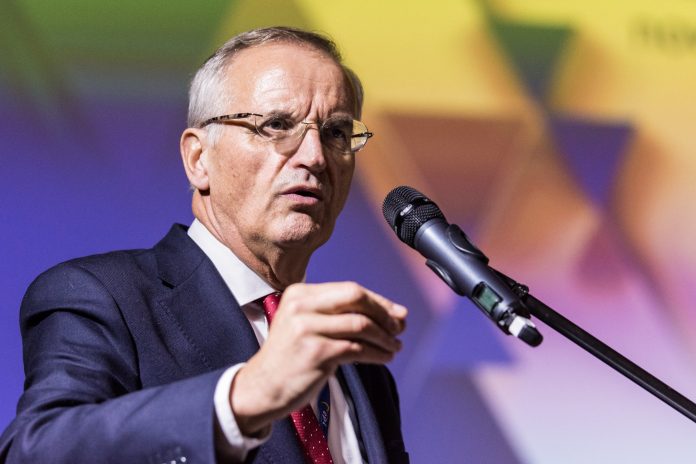Lambert van Nistelrooij, a Dutch Member of the Internal Market and Consumer Protection Committee (IMCO) of the European Parliament reveals his thoughts on The Accessibility Act, focussing on improving life for people in Europe with disabilities
There are over 70 million people with disabilities in the European Union. With an ever-increasing ageing population, this number will go up. Due to low birth rates and rising life expectancy, the proportion of older people is also increasing rapidly. Within the coming 40 years, the number of people over the age of 65 will almost double, from 17,4% to 30%. Just like every EU citizen, elderly people and people with disabilities need full access to all aspects of life. In practice, however, this is not the case.
Elderly people and people with disabilities face hardship in accessing e-commerce services, using household appliances and accessing public transport and buildings. To address these issues and get ahead of the curve the European disability strategy 2010-2020 formulated a specific focus on accessibility. Since this is a shared competence with the Member States, it hampered on the implementation.
In my capacity as MEP, I am both a member of the Committee Internal Market and Consumer Protection (IMCO), and President of the Parliamentary Intergroup on Active Ageing. Within the IMCO committee, we worked on the European Accessibility Act. This Directive improves the functioning of the internal market for accessible products and services by removing barriers created by divergent legislation.
Moreover, it defines the existing, but undefined, the obligation of accessibility as laid down in European law, especially when it comes to public procurement and the structural funds. This facilitates both the work of companies and brings benefits for disabled and older people in the EU. For me, Active Ageing means helping people stay in charge of their own lives for as long as possible as they age and, where possible, to contribute to the economy and society.
I also have a personal commitment to accessibility measures. In this respect, I want to be ahead of the curve in the healthcare sector. That is why from 9 to 12 July I will organise the photo exhibition “LetMEbe” in the European Parliament together with a Dutch institution for people with mental disabilities. We will also publish a booklet on the contributions from the Prisma exhibition.
Together with the UN, we improve the accessibility of public space and participation in daily life for people with disabilities. The vote on the Accessibility Act in 2017 shows that we actually want to translate these rights into national practice. These rules mean concrete improvements for people with disabilities when it comes to mobile phones or banking services that can also be used by the blind and visually impaired. The construction of new public buildings is one of the examples in the legislation.
At the same time, we also take into account the position of small and medium-sized companies, by keeping the accessibility requirements workable and achievable for them. The directive tells them what needs to be accessible but does not impose ‘how’ they will achieve this. Thereby we leave plenty of space for innovation and dialogue with the users. This way we strike a balance between the needs of the citizens and the businesses.
MEP Lambert van Nistelrooij
EPP-group
Tel: +32 (0) 228 474 34











